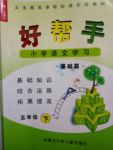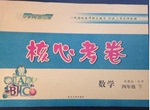题目内容
阅读下面材料,根据上下文在空白处填入适当的内容(1个单词)或括号内单词的正确形式。
Many teens in high school want to try out for sports because they think it will make them more popular. _1.___ there are lots of other benefits from sports that teens may overlook(忽视).
With TV, movies, computers, and video games ___2._ (become) more and more popular, it has become much __3.___ (easy) for teens to be by themselves rather than going out with friends. Kids used to hang out at the mall or drive around the town; now they just sit at home. __4.__ (get) teens into a sport gives them an opportunity to go out and socialize. Although they may not find a new best friend, they will learn how to interact and work as _5._ team, something that they’ll find __6.___ (use) later in life.
More and more kids are becoming overweight. If teens see that their physical condition is causing them to perform __7.__ (bad), they may ___8.___ (motivate) to do other activities to get healthy. When your child __9.____ (reach) their teenager year, part of good parenting will provide them __10.___ direction and encouragement and continue to help them develop a healthy style of living.
 小学学习好帮手系列答案
小学学习好帮手系列答案 小学同步三练核心密卷系列答案
小学同步三练核心密卷系列答案A. wherever | B. fantasy | C. flight | D. likely | E. represent |
F. approach | G. react | H. content | I. various | J. outstanding |
1.__________ to be chosen to speak or act in place of someone
2.__________ to or at any place, position or situation
3.__________ extremely good
4.__________ to come nearer to something or someone from a great distance
5.__________ happy and satisfied
6.__________ the act of flying, especially scheduled on a plane
7.__________ something that is pleasant to think about but is not real
8.__________ to act in a particular way as a direct result of something else
9.__________ of several different types
10.__________ very probably

